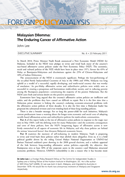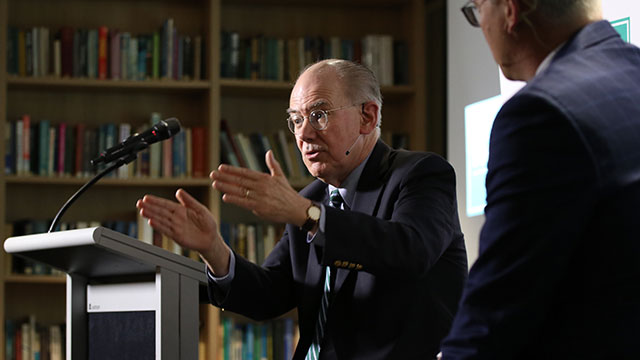
In March 2010, Prime Minister Najib Razak announced a New Economic Model (NEM) for Malaysia. Included in the NEM were pledges to revise and wind back many of the country’s race-based affirmative action policies under the New Economic Policy (NEP). The economic, social and cultural policies of the NEP, which have been in place since 1971, favour the 65% of Malay or Bumiputra-Malaysians and discriminate against the 25% of Chinese-Malaysians and 10% of Indian Malaysians.
The announcement of the NEM is enormously significant. Perhaps the best-performing of the so-called Newly Industrialised Countries of Asia in the 1980s and 1990s, Malaysia was long upheld as a model of a successful, rapidly developing, and multi-racial country that was worthy of emulation. Its pro-Malay affirmative action and redistributive policies were widely seen as successful in creating a prosperous and harmonious multi-ethnic society, and in reducing poverty among the Bumiputra population—constituting the majority of the poorest Malaysians. But the NEM casts fresh and serious doubt on this positive assessment.
Economists have long argued that the country’s affirmative action policies are inefficient and unfair, and the problems they have caused are difficult to repair. But it is the first time that a Malaysian prime minister is linking the country’s enduring economic structural problems with the affirmative action policies of three decades. It is also the first time a Malaysian leader has proposed the substantial revision and even winding back of these long-standing policies.
There is also a broader message. For so long the poster-child for such initiatives, Malaysia’s current predicament issues a warning about the longer-term economic and social costs of adopting racially based affirmation action and redistributive policies for multi-ethnic communities.
Part A of this report looks at the rise of affirmative action policies in response to the tragic race riots in May 1969—still the defining event for many Malaysians—and the economic consequences and costs of these policies, how the NEP’s burgeoning legacy of affirmative action is now firmly entrenched in all aspects of economic life in Malaysia, and why these policies are behind the serious ‘structural factors’ that threaten Malaysia’s economic future.
Part B examines the moment of self-reckoning in modern Malaysia. Najib is proposing to revise and wind back these policies rather than abolish them altogether. Even so, it is a bold political gamble driven by the ruling United Malays National Organisation or UMNO-led Barisa National coalition’s poor showing in the 2008 general elections, and a realistic appraisal of the link between long-standing affirmative action policies—especially the objective that Bumiputras own at least 30% of corporate assets in the country—and Malaysian structural economic problems. However, UMNO’s vulnerability is also a reason why it has become more (rather than less) difficult to dismantle many of the affirmative action policies that have been in place for almost 30 years. The prime minister faces considerable obstacles in the form of resistance from within his own party, the opposition parties, and significant and powerful segments of the Malaysian elite.
Indeed, although it is still too early to assess Najib’s capacity to introduce genuine and far-reaching reform, current policy initiatives do not represent a significant roll-back or revision of existing affirmative action policies in any meaningful sense. There have also been few initiatives aimed at reducing the role of the state in the Malaysian economy—which is essential for cutting back rent-seeking opportunities by Malay elites in the name of affirmative action. Worryingly, when it comes to taking on the key pillars of the most wasteful and unequitable pro-Malay policies, there is already early but troubling evidence that Najib is stepping back from the bold declaration of a New Economic Model for the country. By Najib’s own admission, without genuine and far-reaching reform of existing affirmative action policies, Malaysia is facing a bleak and precarious future.










